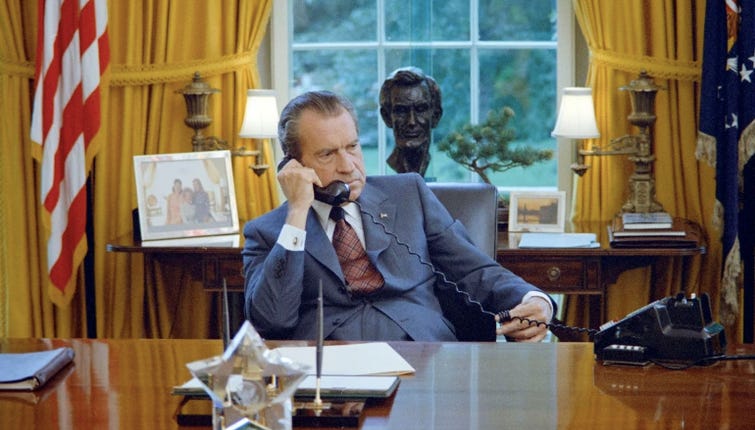Over the recent few years, I’ve noticed conservatives frequently harkening back to the phrase “the silent majority.” Whenever they find themselves beaten down by the media, silenced by detractors, or mocked by politicians in the establishment, they assure themselves that the “silent majority” of people with conservative values afraid to speak publicly will have their voices heard at the ballot box.
The term “the silent majority” was used by Calvin Coolidge in 1919 during his unsuccessful presidential run but was popularized by President Nixon on November 3, 1969, when he was trying to unite the country to support the Vietnam War.
At the time, the war was deeply unpopular, with just 32 percent of Americans saying President Johnson’s decision to escalate the war was not a mistake.
Nixon’s efforts to unite the country worked in 1972 when he won the largest landslide in recent political history, winning nearly 61 percent of the popular votes and a 49-state landslide. Yet, just a year later, Nixon announced an end to the war and one of the most divisive events in American history. The silent majority of the World War II generation and those even older were able to defeat George McGovern and the counter-cultural revolution.
Since Nixon’s landslide, the term has been used countless times, including when Ronald Reagan won back-to-back presidential victories in 1980 and 1984, Rudy Guiliani scored a surprising upset in 1993, Republicans led by Newt Gingrich won the House of Representatives in 1994, and most recently, Donald Trump campaigned for president in 2016.
As more people, especially conservatives, have become fearful of alienated friends and even losing their job for speaking up about their political beliefs, the idea of the silent majority has become more attractive, especially to people with ideas far outside political norms.



